Burundi's President Pierre Nkurunziza was in a confident, defiant mood as his motorcade rolled back into the capital Bujumbura following a failed coup, cheered by supporters and safely under the watch of loyalist troops who fought off the uprising.
With the plotters in detention or on the run, state radio still broadcasting the government message and independent media silenced, there was little doubt of who was in charge after two days of uncertainty.
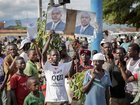 Full Story
Full Story
After weeks of coalition wrangling, Benjamin Netanyahu started his fourth term as Israeli premier Friday, but he faces an even tougher task to mend fences with the United States and Europe.
Soon after its narrow approval by parliament late Thursday, the new rightwing government was warned by Washington that it must forge a deal with the Palestinians for its own good.
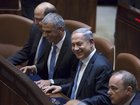 Full Story
Full Story
The chances of anyone being prosecuted for Syrian war crimes are today smaller than ever, experts say, as realpolitik smothers an increasingly solid mountain of evidence accumulated during the often barbaric four-year conflict.
Rights groups have steadfastly documented atrocities committed on the ground, and on Wednesday a committee of renowned investigators said it had enough evidence to prosecute up the chain of command to President Bashar Assad himself.
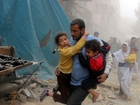 Full Story
Full Story
Poverty-stricken and loathed at home, Myanmar's Rohingya are one of the world's most persecuted minorities -- yet their dire situation has long been ignored in Southeast Asia.
The Muslim community's friendless status angers activists, who say that regional negligence can now be counted in lives lost as a wave of migrants find themselves in desperate straits at sea.
 Full Story
Full Story
Nepal's earthquake should act as a wake-up call to neighboring countries which have failed to learn lessons from their own disasters and where shoddy construction and rapid urbanization could lead to death on an even greater scale next time round, experts say.
Given its location on a seismic faultline, another major earthquake had long been feared in the Himalayan nation following a disaster in 1934 that flattened much of the capital Kathmandu.
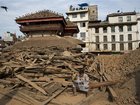 Full Story
Full Story
Dozens of Iraqis crowding a Baghdad street fought to glimpse the red-haired man in a glass coffin, hoping to witness the end of a long-feared member of Saddam Hussein's regime.
The furore over the dead man -- who might be Saddam's deputy Izzat al-Duri, though his identity has still not been determined -- is yet another sign of the influence the dictator exercises in Iraq more than 12 years after his overthrow.
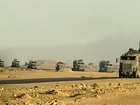 Full Story
Full Story
Somalia's Shebab militants are divided over whether to maintain their allegiance to Al-Qaida or shift to Islamic State, according to militant and security sources, analysts and clan elders.
The division comes at a time when Islamic State in Iraq and Syria has become the jihadist franchise of choice, attracting fighters from abroad and other militant groups such as Boko Haram in Nigeria, while Al-Qaida too has recently expanded its territory in Yemen.
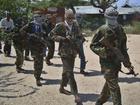 Full Story
Full Story
As Iran nuclear talks go into the home stretch, top officials in Tehran are digging in on positions that appear set to doom the negotiations to failure. But Iran seems ready to blink when it serves its negotiating strategy, which may bode well for a deal.
The sides on Wednesday began negotiating the last phases of a deal that would lift sanctions on Iran if it agrees to long-term curbs on its nuclear program. They wouldn't have gotten there without compromises by both Washington and Tehran.
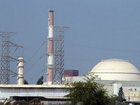 Full Story
Full Story
Saudi Arabia's government insists it is not at war with Iran despite its three-week air campaign against Tehran-backed rebels in Yemen, but the kingdom's powerful clerics, and its regional rival's theocratic government, are increasingly presenting the conflict as part of a region-wide battle for the soul of Islam.
The toxic rivalry between Sunni Saudi Arabia and Shiite Iran is playing out on the battlefields of Yemen and Syria, and in the dysfunctional politics of Iraq and Lebanon, with each side resorting to sectarian rhetoric. Iran and its allies refer to all of their opponents as terrorists and extremists, while Saudi Arabian clerics speak of a regional Persian menace.
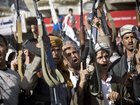 Full Story
Full Story
The Saudi-led coalition's air strikes and a possible ground invasion of Yemen to defend President Abedrabbo Mansur Hadi from Huthi rebels transcend the achievements that the conflicting parties would make in the battlefield. Their importance lies in the recalculations that the region's players would make after the operation that was launched by Riyadh last month.
The move of Saudi Arabia and its allies against the Shiite rebels was a form of “revolution” in the policies of Riyadh and Gulf countries amid the turmoil in the region and against the expansion of Iranian influence in more than one state.
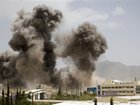 Full Story
Full Story



